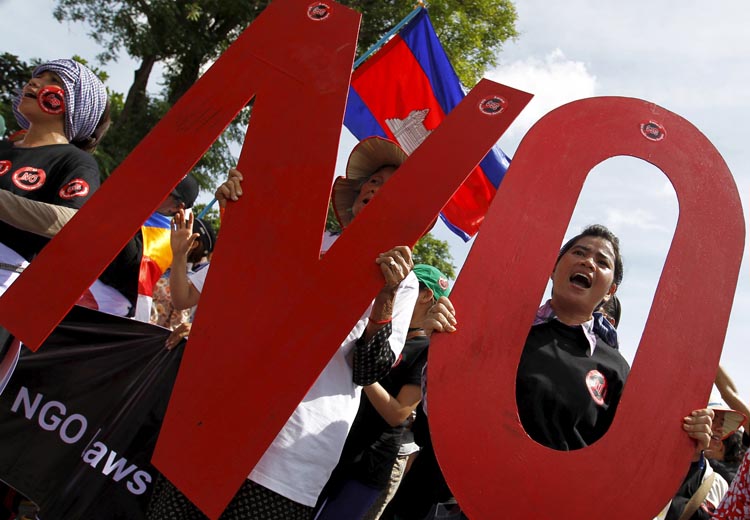Cambodia passes law to regulate NGOs despite concerns
PHNOM PENH: Cambodia passed on Monday a contentious law to regulate non-governmental organisations (NGOs) which government critics fear will be used to muzzle opposition.
All 68 members of parliament from the ruling Cambodian People's Party (CPP) backed the law while the opposition Cambodia National Rescue Party boycotted the assembly session, saying the public had not been consulted and the bill should be dropped.
Thousands of riot police were outside parliament in the capital, Phnom Penh, to keep back hundreds of protesters waving banners and balloons calling for the law to be scrapped.
There have been growing international calls for Cambodia to drop the law, including from the European Union and the United States, which have said the law restricts the activities of civil society groups and the defenders of human rights.
The law requires Cambodia's 5,000 domestic and international NGOs to report their activities and finances to the government. Failure to do so can result in fines, criminal prosecution and the closure of organisations.
"Before, we were not been able to control NGOs, on where their funding came from and how it was used," CPP member of parliament Nin Saphon told the National Assembly.
"We need to have this law now."
Cambodia has emerged from decades of war and isolation to become a promising frontier market. It has cut the number of poor among its population to one-fifth in 2011 from half in 2004 with NGOs playing an important role in the process.
The law allows the government to take wide-ranging action against NGOs, targeting them for anything from jeopardizing peace, stability and public order to harming national security or Cambodia's culture and traditions.
Critics say Prime Minister Hun Sen and his party have often ridden roughshod over human rights and the law poses a threat to freedom of association and expression. Rights groups say existing laws address government concerns about activist groups.
Addressing international criticism, Deputy Prime Minister Sar Kheng, who is also a top ruling party member, defended the legislation and said criticism of it was acceptable.
"This law is good, we've spent 20 years on this law," Sar Kheng told reporters. "People have a right to criticize, nothing is perfect."
The government has said the law also aims to prevent the funding of terrorism, but it has not said if such a threat exists in Cambodia.






